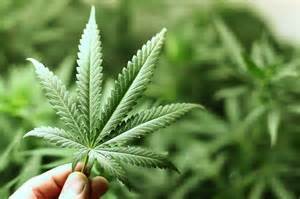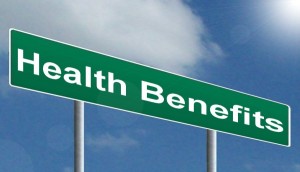A small percentage of the world’s population suffer from Celiac Disease, also known as an allergy to gluten/autoimmune disorder. Some people may not realize they have this disease until later in life, and eliminating gluten completely from t heir diet may feel like an epiphany, and solve many issues. However it has become a common diet and trend amongst people who do not have Celiac disease to go “gluten free”. Since gluten is found in wheat, barley, and rye, cutting it out of your diet almost seems like a guaranteed method to loosing weight. Is that really accurate though?
heir diet may feel like an epiphany, and solve many issues. However it has become a common diet and trend amongst people who do not have Celiac disease to go “gluten free”. Since gluten is found in wheat, barley, and rye, cutting it out of your diet almost seems like a guaranteed method to loosing weight. Is that really accurate though?
Even people with Celiac Disease that go on gluten free diets are not guaranteed to lose weight. In fact, a study conducted over 2 years on 371 people with Celiac disease showed that 82% of people that were already overweight, gained even more weight once going gluten free. Of course, if you have a gluten allergy, you have no choice but to cut it out completely, but this supports the claim that people without the disease should keep it in their diet.
A study was conducted, in which 139 peoples recorded a food diary of their gluten-free lives in order to analyze levels of nutrients that were ingested. It was found that levels of magnesium, zinc, and iron were lower than what is recommended. Energy intake was also lower.(Robins) There are potential problems with this experiment though, because the sample size is not too big and there could be errors in people’s self reports.
Gluten free diets may be suggested to people with gastrointestinal problems such as IBS or even Autism Spectrum disorders. However, there is a lack of evidence supporting the claim that going gluten free will help these problems. Our body benefits from stomach bacteria that gluten provides. Oligofru ctose is an important starch found in wheat that improves or metabolism of lipids and and absorption of minerals. When we cut gluten out of our diet completely, we are missing out on these benefits. (Gaesser)
ctose is an important starch found in wheat that improves or metabolism of lipids and and absorption of minerals. When we cut gluten out of our diet completely, we are missing out on these benefits. (Gaesser)
One experimental study was done on a group of 10 subjects, in which they followed a gluten free diet for an entire month. At the end of the month, researchers took fecal samples and found that were lacking beneficial bacteria. (Gaesser)
In another double-blind, randomized experiment, women were given 48g of wheat for breakfast for a 3 week period. Fecal samples were collected before and after the experiment, and after the diet, it was evident that one bacteria called Bifidobacterium increased 10%. (Gaesser)
As it might seem like a desirable thing to cut out gluten from your diet, it is probably not a good idea if you do not suffer from Celiac disease. There is no evidence that can prove weight loss benefits, and you will miss out on healthy bacteria for your body. Gluten free diets are also hard to abide by, and a lot of bread substitution products still contain carbs and sugar, defeating the purpose of weight loss. It is not determined how detrimental these bacterias are to one’s life, however it is important to provide your body with nutrients in order to maintain health.
Sources:
http://www.andjrnl.org/article/S2212-2672(12)00743-5/fulltext?mbid=synd_msnhealth
http://onlinelibrary.wiley.com/doi/10.1111/j.1365-2036.2010.04386.x/full
Pictures:
http://blog.pharmacymix.com/wp-content/uploads/2012/05/gluten-free.jpg
http://yourpathpersonaltraining.com/wp-content/uploads/2014/07/Gluten1.jpg



 It is hard to find hard evidence in experiments correlating amount of sleep and grades. Certain experiments call for many flaws, such as self-reports lacking verification, different grade biases and scales, and general intelligence/IQ. Multiple variables would need to be factored for in order to gain more accurate results.
It is hard to find hard evidence in experiments correlating amount of sleep and grades. Certain experiments call for many flaws, such as self-reports lacking verification, different grade biases and scales, and general intelligence/IQ. Multiple variables would need to be factored for in order to gain more accurate results. A self-reporting survey done by Wolfson and Carskadon measured 3000 high school students’ grades and sleeping trends. It concluded that the students with the higher GPAs tended to have better sleeping patterns, and getting a larger amount of rest than those with lower GPAs. The evidence from a study like this would be more strongly supported if meta-analyses were done confirming the same results. However, there have been many other studies that have conclusions on the contrary. In another survey testing relationship between grades and sleep times, 1200 students from 6th-12th grade were asked to self report GPAs and their sleeping tendencies. Researches found no strong correlation that lack of sleep would decrease GPA. (Curcio)
A self-reporting survey done by Wolfson and Carskadon measured 3000 high school students’ grades and sleeping trends. It concluded that the students with the higher GPAs tended to have better sleeping patterns, and getting a larger amount of rest than those with lower GPAs. The evidence from a study like this would be more strongly supported if meta-analyses were done confirming the same results. However, there have been many other studies that have conclusions on the contrary. In another survey testing relationship between grades and sleep times, 1200 students from 6th-12th grade were asked to self report GPAs and their sleeping tendencies. Researches found no strong correlation that lack of sleep would decrease GPA. (Curcio) cancer than Hispanic-whites with darker skin. However, the light skin doesn’t appear to be the determining factor because in China and Singapore, incidence of skin cancer is lower than that in the US. (Armstrong) In China and Singapore though, tanning and darker skin is not as appealing as it is in the US. Indoor tanning tends to be more popular in Northern countries, in areas with less sun. It is in these countries that skin cancer is more prominent. A study done in Sweden showed that more than 50% of its female participants under 24 years old have already artificially tanned.
cancer than Hispanic-whites with darker skin. However, the light skin doesn’t appear to be the determining factor because in China and Singapore, incidence of skin cancer is lower than that in the US. (Armstrong) In China and Singapore though, tanning and darker skin is not as appealing as it is in the US. Indoor tanning tends to be more popular in Northern countries, in areas with less sun. It is in these countries that skin cancer is more prominent. A study done in Sweden showed that more than 50% of its female participants under 24 years old have already artificially tanned. In one observational study done in Japan and the US physical aggression was measured in accordance to high exposure to video games containing violence. The hypothesis was that holding gender and aggressive background constant, video games would increase violence over time. 181 Japanese students from 12 to 15 and 1050 from 13 to 18 were observed, along with a sample of US students between 9 and 12. Their behavior was observed once after 3 months, and once after 6 months. (Anderson) This study concluded that students who frequently played violent video games became somewhat more aggressive.
In one observational study done in Japan and the US physical aggression was measured in accordance to high exposure to video games containing violence. The hypothesis was that holding gender and aggressive background constant, video games would increase violence over time. 181 Japanese students from 12 to 15 and 1050 from 13 to 18 were observed, along with a sample of US students between 9 and 12. Their behavior was observed once after 3 months, and once after 6 months. (Anderson) This study concluded that students who frequently played violent video games became somewhat more aggressive.





